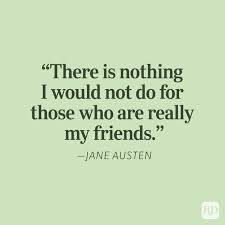Can we Trust anyone?
Prelude – I love this headline and the feisty nun, ‘Way to go!’
Video: Nun tackles male climate extremist trying to disrupt Catholic religious center construction in France:

What is a Legal Trust?
What does ‘trust’ mean in our terms?
- Trust is a brain process that binds representations of self, other, situation, and emotion into a neural pattern called a semantic pointer.
- Trust is rarely absolute, but rather is restricted to particular situations.
- Mistrusting someone is not just a prediction of betrayal. It’s also a bad emotional feeling about the untrustworthy person.
Trust is a central part of all human relationships, including romantic partnerships, family life, business operations, politics, and medical practices. If you don’t trust your doctor or psychotherapist, for example, it is much harder to benefit from their professional advice.
But what is trust? Here are some possibilities:
- Trust is a set of behaviors, such as acting in ways that depend on another.
- Trust is a belief in a probability that a person will behave in certain ways.
- Trust is an abstract mental attitude toward a proposition that someone is dependable.
- Trust is a feeling of confidence and security that a partner cares.
- Trust is a complex neural process that binds diverse representations into a semantic pointer that includes emotions.
Why I am writing this piece
However, I just called my eye department in my local hospital. I asked why I did not have a follow-up appointment to my recent cataract operation and they could not find out why commerce that they said they would call me back. I half expected not to be called back but I was pleasantly surprised when three hours later they called to say that for some reason I had been marked as discharged so they have reversed this and were able then to give me an appointment. This was gratifying, and made a closure to the conversation.
The value of honesty
Empty Promises
empty promises are best not made in the first place.
Marriage and relationship trust issues
Summary – why trust?
Trust in God
Addendum –
This is an incomplete record of a Scientific and Medical Network ZOOM meeting held on Monday the 30th of October 2023

Trust or lack of it is formed from conception onward. I commented that in cases of the mother and father not loving each other the child emerges with ambivalent feelings of worth towards themselves and this can continue into adult life where they feel they can never be good enough. The biological explanation is that the blood from the mother circulates to the circulatory system of the child. Blood contains iron. That can be imprinted on with thoughts. This does not include energy fields and memory.
We discussed what types of children had the healthiest up bringing and it was posited that children who live on farms, together as a family with nature, experiencing life and death, working as a team, are among the most healthy whereas children from crowded cities can be very neurotic and problematic.
An attendee had given away money to about 40 people and in many cases debtors not pay them back and indeed treated them as an enemy and we discussed why this could have been the case. It could have been a learned pattern of behavior as a child where you wanted to please people. We consoled her by saying that in the eyes of the Almighty her good intentions would be blessed.
Some people we can trust instinctively, others we distrust instinctively and others we reserve judgment on. The criteria for the certainty of our trust being returned depends on the conditions. For example if you are going to enter into a business partnership with somebody or indeed are going to marry them, you would need to be very much more certain than with someone you just do business with from time to time. Some of us have to learn the hard way and we have trusted people because we want to trust them, because we need to trust them, or we are simply naive. It would be rare to find a person who has not been let down.

Pritti Patel ….A smile? A smirk? Smugness? Mixed messages here methinks.
The proposal was made that educe trust when we smile at someone; the smile was in one case instrumental in discouraging someone from taking their own life. I made the comment that if your motives are mixed, the 23 sets of facial muscles that are required for a smile do not cooperate and an intended smile can turn into a grimace, a grin, or even a snarl.
Someone said that we need to raise our vibrations so we have a presence that people will hesitate before abusing. As Tesla said, down to vibrations and frequency and wavelength.
I find it very shocking when someone I have known and trusted for some time behaves in an unethical way. But this has happened to me very rarely. It is often to do with or untruthfulness or manipulation.
What do people think about the thought that trust must be earned.
Charlie Rykken offered three useful references
https://link.springer.com/article/10.1007/s40750-020-00155-z
Sex Differences in Intimacy Levels in Best Friendships and Romantic Partnerships Eiluned Pearce, Anna Machin & Robin I. M. Dunbar 2020
https://psycnet.apa.org/fulltext/2024-16890-004.pdf
Ignorance by Choice: A Meta-Analytic Review of the Underlying Motives of Willful Ignorance and Its Consequences 2023
https://www.scientificamerican.com/article/humans-are-not-the-only-creatures-who-mourn/
Humans Are Not the Only Creatures Who Mourn Barbara J. King 2015
I said that we all have duty of care towards ourselves and I gave the example of a young doe who entered a field and was filmed looking around. The animal was doing ‘duty of care’ to itself to avoid being eaten or attacked by other animals. This protective mechanism is deep down in all of us. During our life people have done wrong to us and unless we forgive them the condition becomes carcinogenic. This can spread through our entire mind so we could start about not forgiving one person for one act, compounding that, not forgiving that person at all, and then spreading to not trusting anybody and assuming they are going to take advantage of you.
I have noticed that people who divorced even though it was 20 years ago and speak of their husband or partner in unflattering terms. They have not noticed that they have been tied to the past and a victim of their own emotion. Have ties, love binds.

Not trusting anyone leads to a lonely life. I said that I have a personal inner sanctum and an outer sanctum and all new people go into the outer sanctum. In order to be admitted to the inner sanctum, they have to prove themselves by their actions over a period between about 6 months and 12 months. This minimizes the risk of being hurt.
We should follow our gut and eventually just know whether we can trust someone or not. It is not an intellectual feeling. People with a happy and secure childhood find it much easier to distinguish between people that they can trust, and that they can’t but it’s a sort of felt response.
